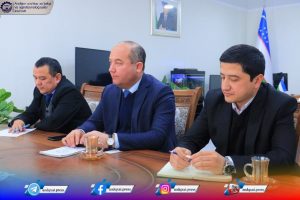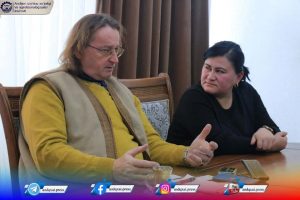December, 2022
INFORMATION
About the activities carried out on “Activation of global cooperation in the interests of sustainable development” at the Andijan Institute of Agriculture and Agrotechnologies
The German Society for International Cooperation (GIZ), a federal enterprise operating globally in the field of international cooperation for sustainable development, helps each country to achieve its sustainable development goals by supporting the development of various countries.
Giz organization (former GTZ) was established in 1975. Giz’s main customer is the Federal Ministry for Economic Cooperation and Development of the Federal Republic of Germany. However, both in Germany and abroad, GIZ performs tasks for other public and private clients.
These include, for example, other ministries of the German government, governments of other countries, the European Commission, the United Nations, the World Bank, as well as representatives of the private sector of the economy.
GIZ works actively in more than 130 countries of the world. In Germany, the organization is present in almost all federal states. Its executive offices are located in the cities of Ashborn (near Frankfurt am Main) and Bonn. The number of GIZ employees working around the world exceeds 17,000, about 70% of whom are national staff from partner countries.
On September 30, 2022, together with the Andijan Institute of Agriculture and Agro-Technology and the GIZ International Cooperation Society of Germany, ideas were exchanged on the scientific research conducted by professors and trainees in recent years to achieve the UN Sustainable Development Goals at the institute, and another new cooperation was established. an agreement has been reached.
As the first step in the implementation of the new project, the expert on higher education, professor Frank Neuman met with the rector of the institute Komiljon Komilov. According to the project, the institute will develop a curriculum for the field of Logistics (agro-logistics) that meets the requirements of international accreditation. During the open dialogue and negotiations, a road map was drawn up and a memorandum was signed regarding the effective implementation of the project.



